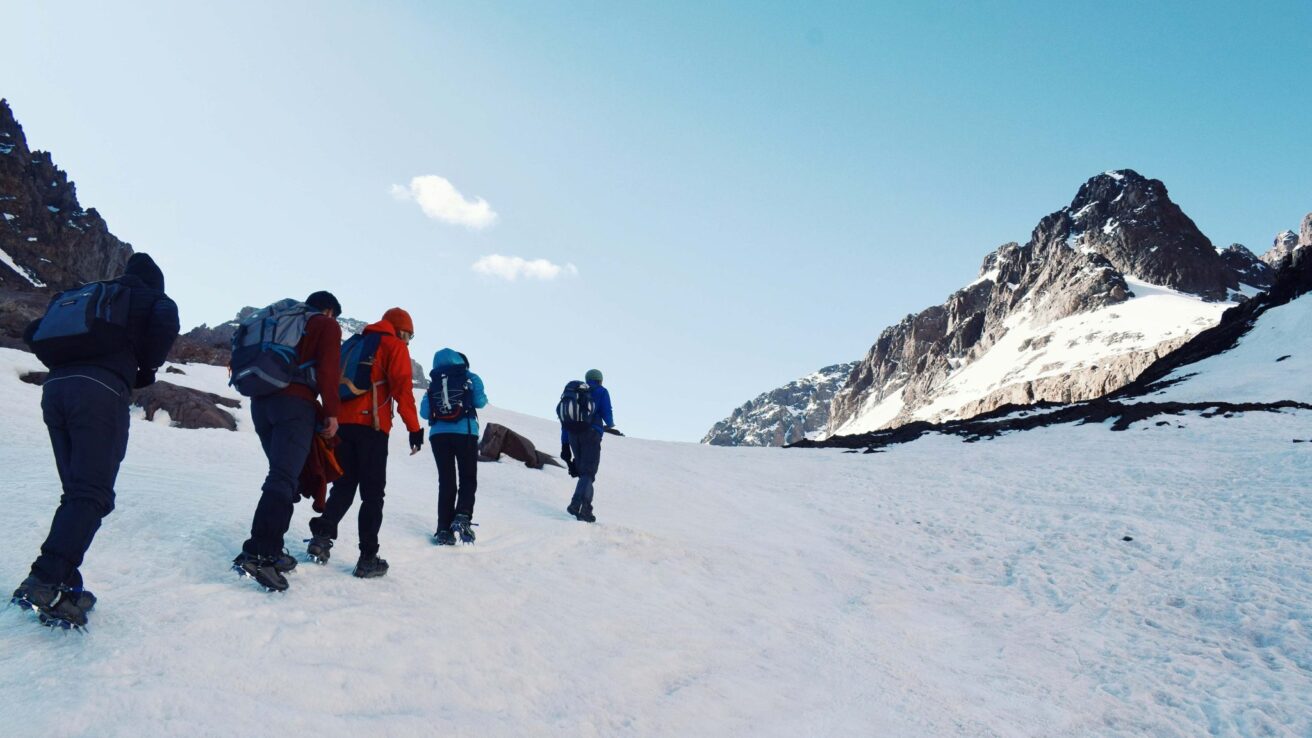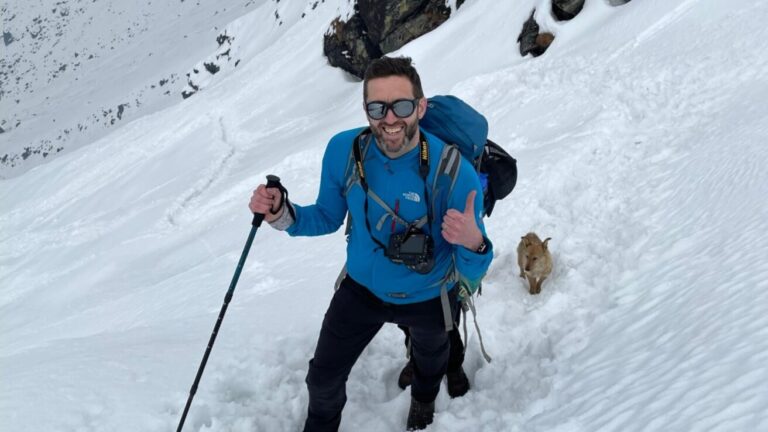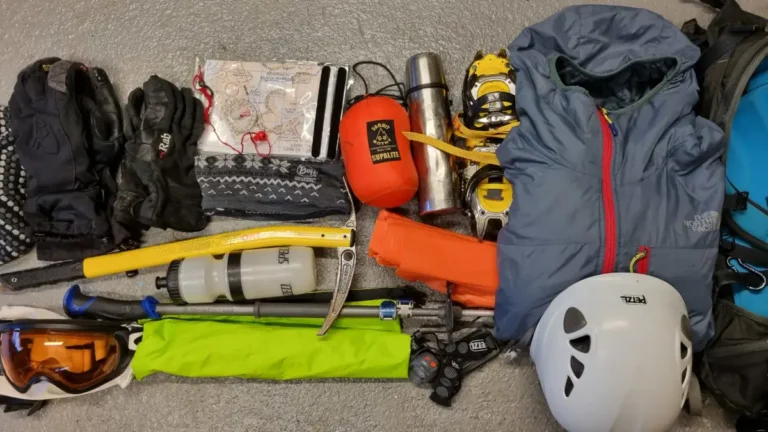Campers gather around a blazing campfire amidst a snowy landscape. With only one planet to call home, it’s crucial to nurture it year-round, regardless of our activities. Enter Leave No Trace (LNT) principles, crafted to minimize our environmental footprint while enjoying outdoor pursuits.
As winter beckons, the outdoor scene transforms with an influx of enthusiasts embracing activities like cross-country skiing and winter hiking. Amidst this surge, upholding LNT values becomes paramount to safeguarding our scenic wonders and the creatures inhabiting them.
So, how does one uphold LNT ethics amidst snowy adventures? Hannah Olson, a seasoned REI Day Guide from Minnesota, shares insights honed over her 11 years of braving chilly climes. Drawing from her expertise, here’s a tailored approach to the seven LNT principles for snowy escapades.

- Prepare, Prepare, Prepare: Winter jaunts demand meticulous planning. Beyond the usual gear checks, delve into winter-specific regulations and trail conditions. Equip yourself with safety gear, including avalanche equipment, and master navigation skills to navigate snow-blanketed terrains.
- Seek Out Durable Surfaces: Opt for robust surfaces like snow and ice for camping endeavors. Steer clear of delicate ecosystems, and adhere to established campsites or durable terrain to minimize environmental impact.
- Pack Out Your Waste: Winter necessitates a rethink of waste disposal. Frozen ground renders traditional burial methods ineffective, mandating the pack-out of solid waste. Ensure all refuse, including food scraps and wrappers, makes its way back home.
- Minimize Campfire Impacts: While campfires evoke nostalgia, exercise caution in snowy settings. Utilize existing fire rings or opt for contained fires on thick ice or snow. Prioritize burning deadwood and extinguish fires thoroughly post-use.
- Leave What You Find: Respect the wintry landscape by refraining from disturbing natural elements. While snow may conceal artifacts, refrain from building structures or altering the environment.
- Respect Wildlife: Winter poses unique challenges for wildlife survival. Maintain distance from animals, secure food and trash to deter wildlife interactions, and respect their habitat during this vulnerable season.
- Be a Good Neighbor: Extend courtesy to fellow adventurers by yielding on trails and respecting designated tracks. Minimize visual pollution, including urine spots, by designating specific areas for bodily functions.
By embracing these principles, winter enthusiasts can revel in snowy splendor while preserving the pristine beauty of our natural playgrounds.







